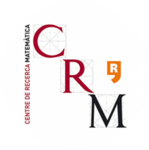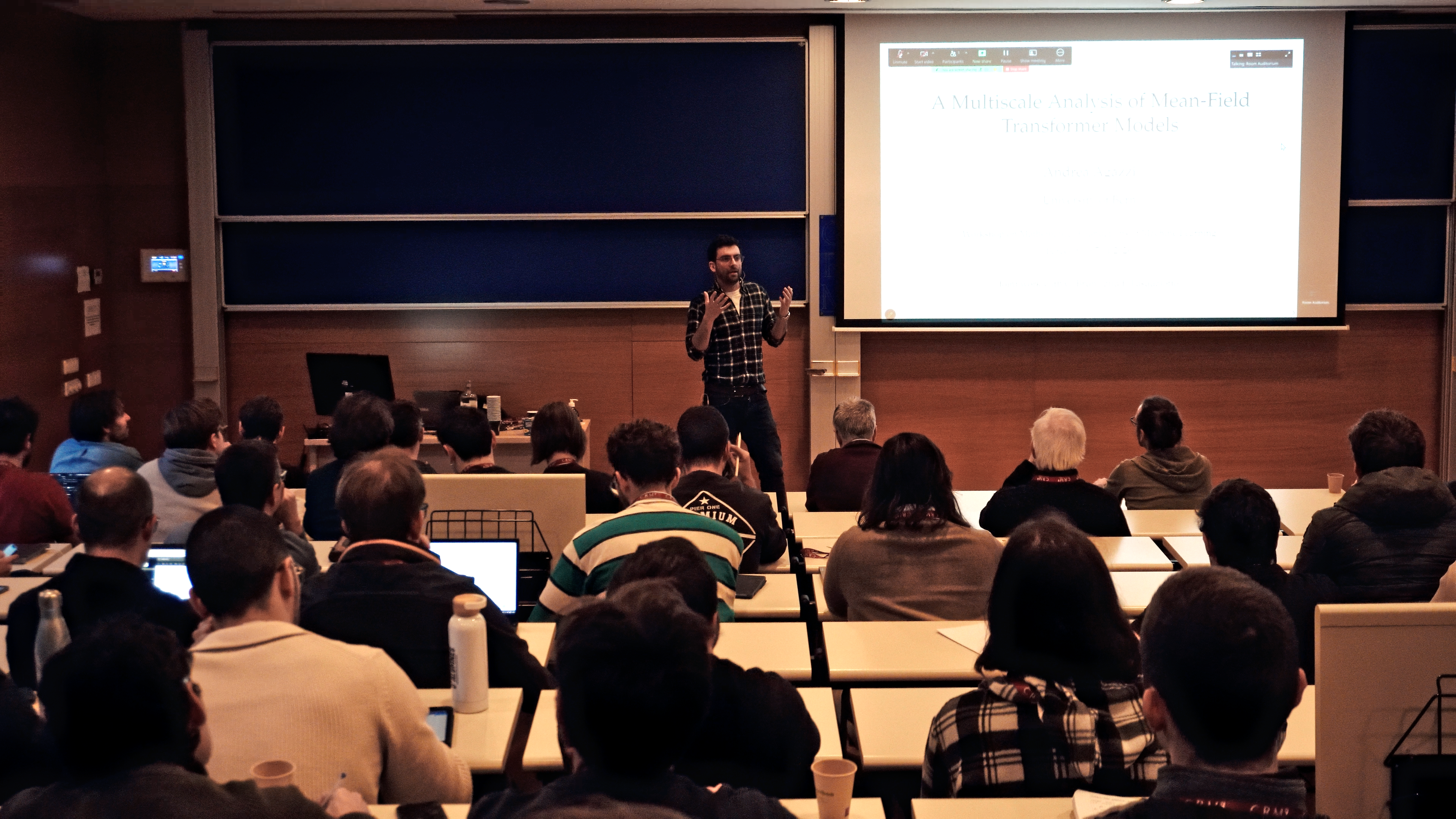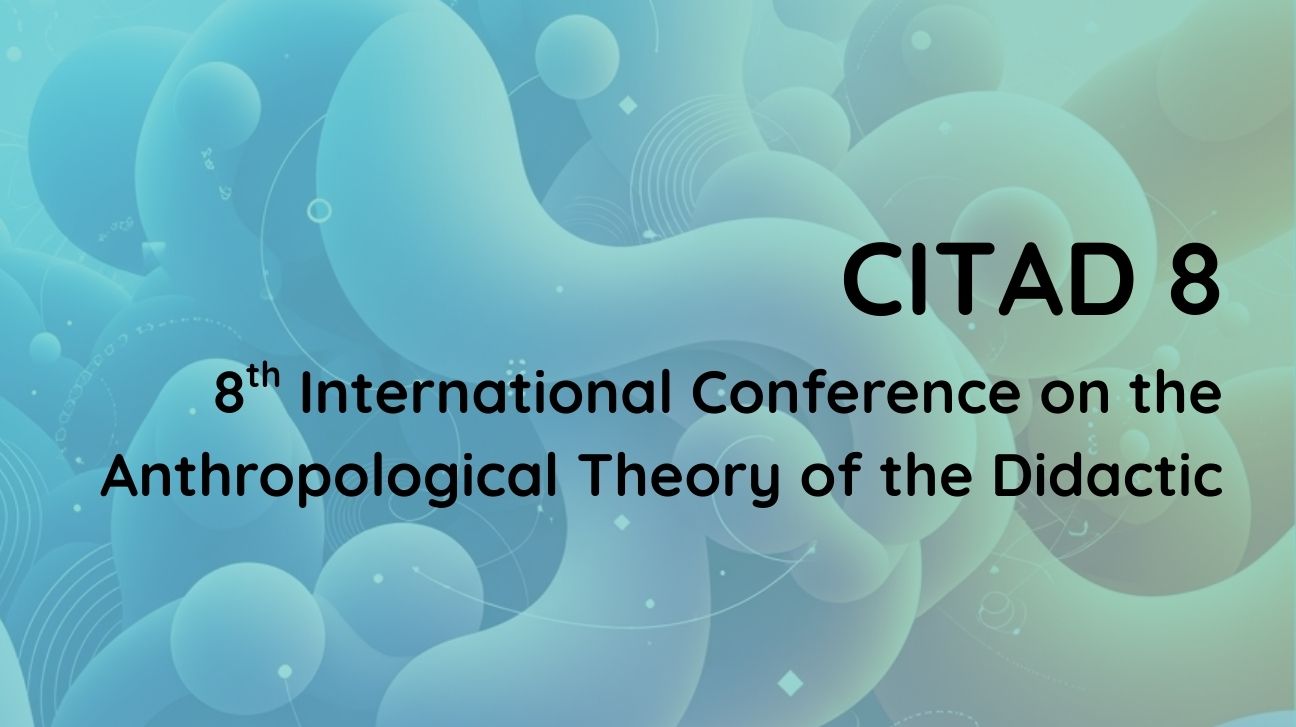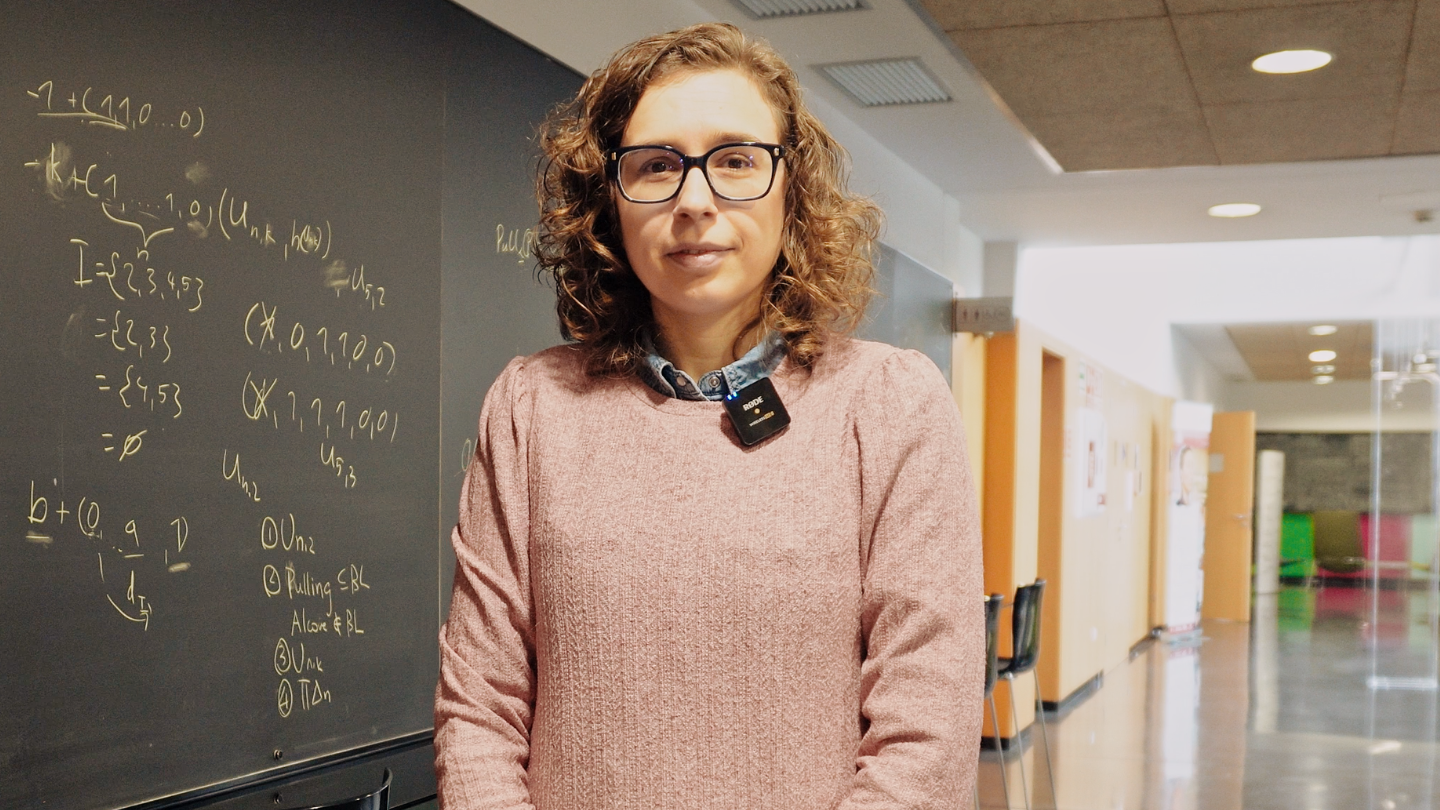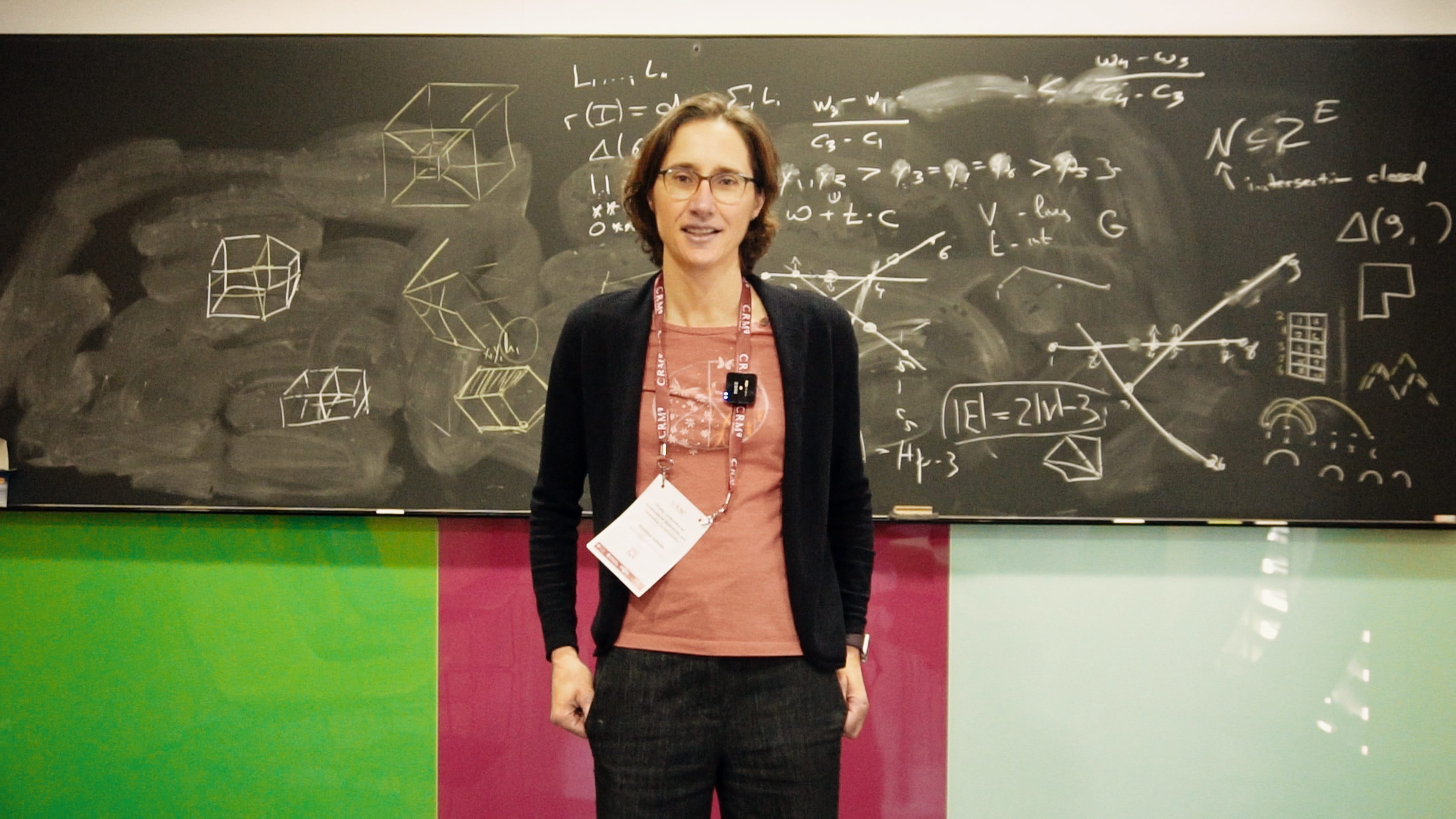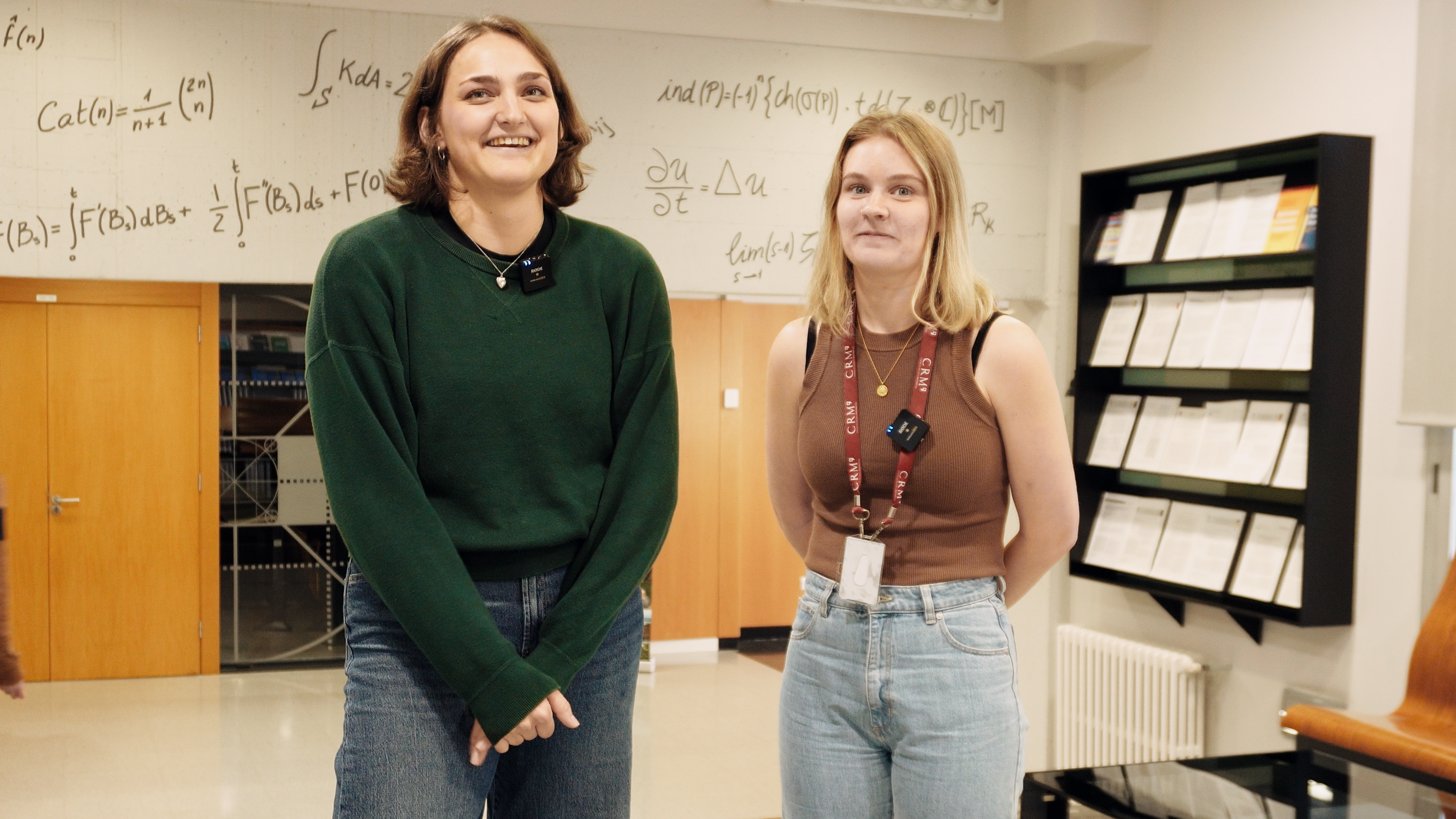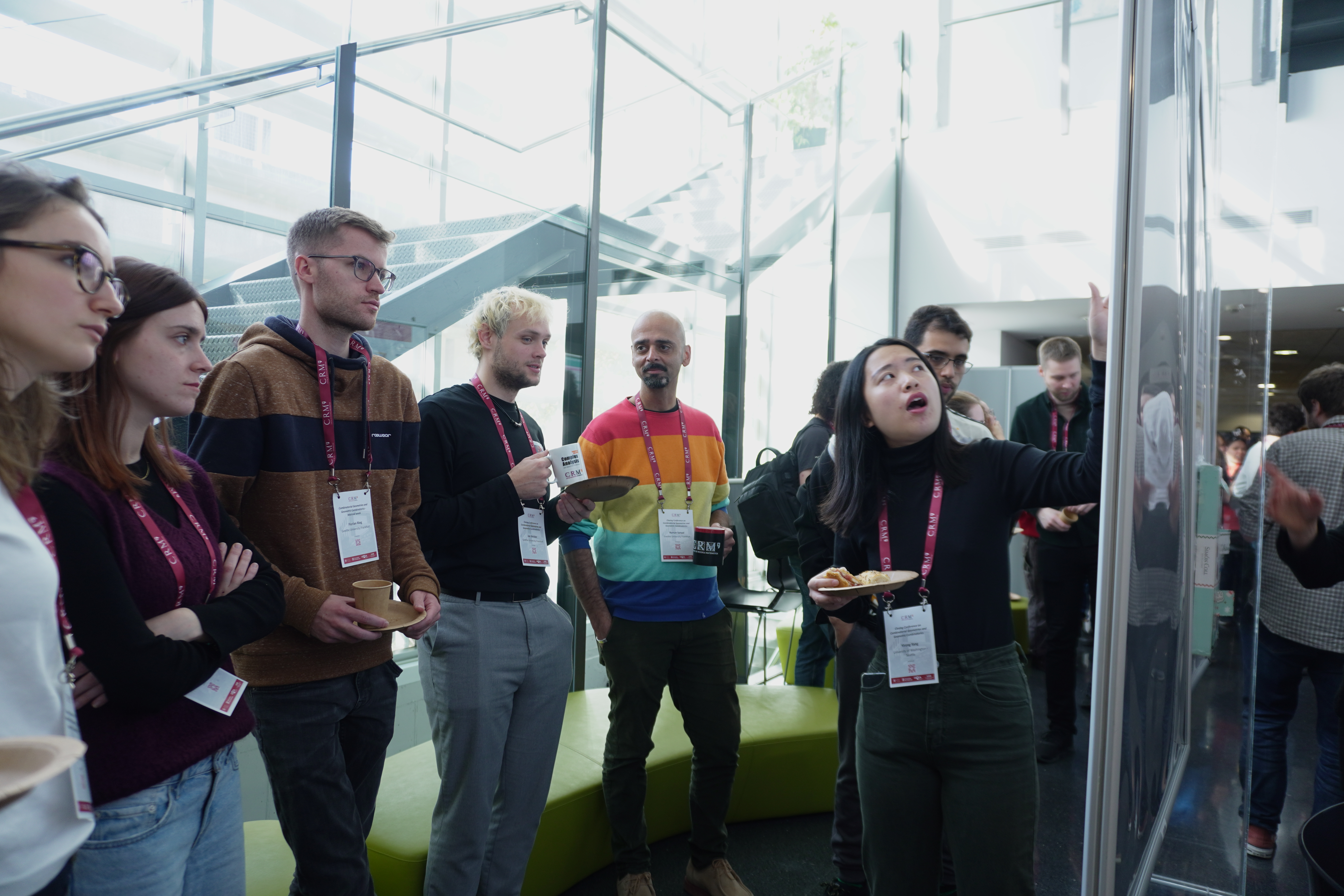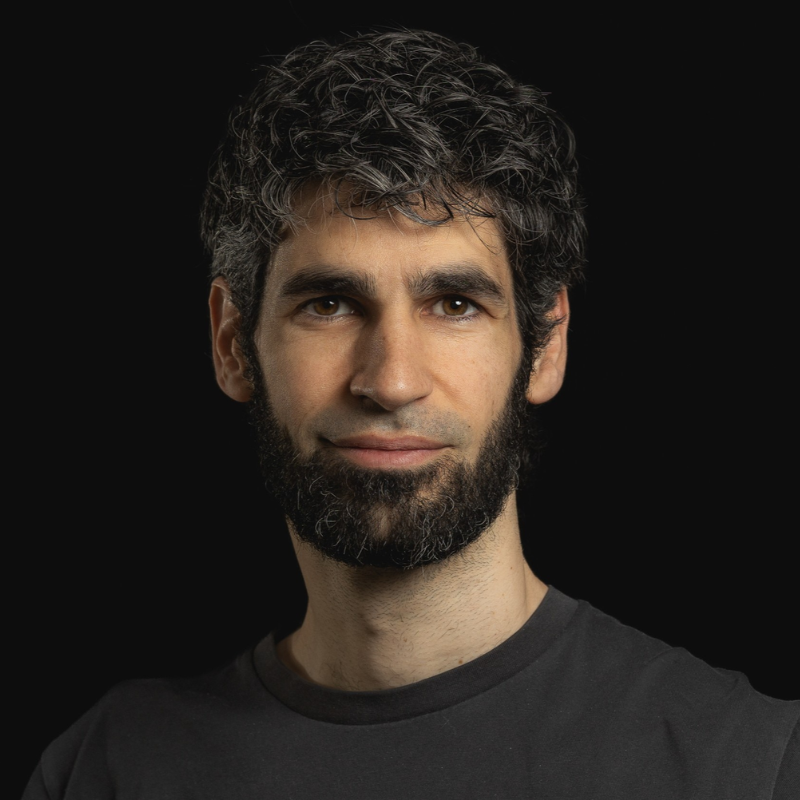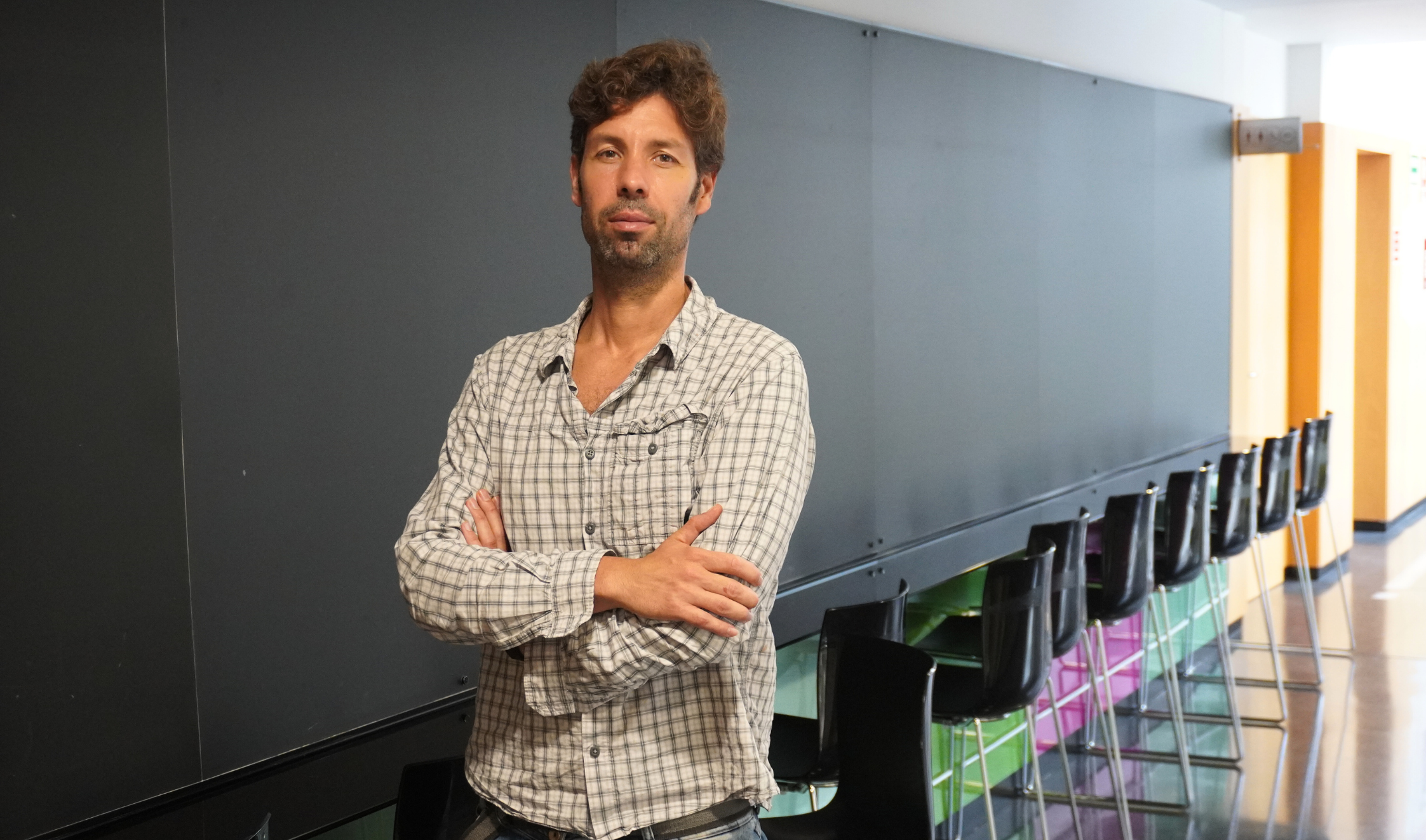
From October 6–10, 2025, the Centre de Recerca Matemàtica hosted the XIII GEFENOL-DIFENSC Summer School, bringing together young researchers and leading experts to explore the role of statistical physics in understanding complex systems. The program featured courses on cancer modeling, active matter, stochastic thermodynamics, and non-equilibrium phenomena, alongside tutorials, invited talks, and poster sessions that showcased cutting-edge research across disciplines.
From October 6 to 10, 2025, the Centre de Recerca Matemàtica (CRM) hosted the XIII GEFENOL-DIFENSC Summer School on Statistical Physics of Complex Systems. This international event aims to train young researchers in the use of statistical physics to understand complex systems—an approach that has proven essential in fields ranging from biology and ecology to information theory and social dynamics.
The program featured four main courses delivered by internationally renowned lecturers:
Tomás Alarcón (ICREA–CRM) delivered a course on Cancer as an Ecological Process, presenting tumours as evolving ecosystems. Mutated cells compete, cooperate, and adapt within hostile environments, offering new insights into why cancer emerges and why it remains so difficult to treat. Alarcón leads the cancer modelling group at CRM. His research focuses on mathematical biology, particularly multiscale and stochastic modelling of tumour growth, drug resistance, and tumour-induced angiogenesis. Since 2015, he has been an ICREA Research Professor and has helped position CRM as a reference centre in the application of mathematics to biomedicine.
Léonie Canet (Université Grenoble Alpes) delivered a course on Functional Renormalisation Group for Nonequilibrium Systems, introducing the FRG formalism and its application to non-equilibrium critical phenomena. She focused on the kinetic roughening of stochastically growing interfaces, described by the Kardar-Parisi-Zhang equation. Canet is a prominent researcher in statistical physics, known for her contributions to non-perturbative renormalisation techniques and their use in understanding turbulence, reaction-diffusion systems, and universality far from equilibrium.
Fèlix Ritort (Universitat de Barcelona) delivered a course on Stochastic Thermodynamics: Theory and Experiments, presenting the essential concepts and tools to understand fluctuation theorems and the conversion of information into energy. Ritort is a full professor of condensed matter physics and leads the Small Biosystems Lab at UB, a world-renowned group in single-molecule biophysics. His research spans statistical physics, disordered systems, and non-equilibrium dynamics, with a strong focus on molecular thermodynamics. He earned his PhD under Nobel laureate Giorgio Parisi and has received multiple awards, including the ICREA Academia and the Bruker Prize for his contributions to molecular biophysics.
Chantal Valeriani (Universidad Complutense de Madrid) delivered a course on Collective Behaviour of Active Systems, focusing on how active matter—systems of energy-consuming units—exhibits large-scale collective motion. She introduced key models like Active Brownian Particles and the Vicsek model, and presented ActiveNet, a machine-learning tool that infers interaction forces from particle trajectories. With a PhD from the University of Amsterdam under Prof. Daan Frenkel and postdoctoral experience at the University of Edinburgh, she is a leading researcher in soft matter and active systems, and currently Associate Professor at UCM.
In addition to the main courses, the program was enriched by two invited tutorials: Juan Manuel López (Instituto de Física de Cantabria) introduced key ideas from information theory, while Isabel Pastor (Universitat de Barcelona) guided participants through a visit to Fèlix Ritort’s lab, offering a hands-on perspective on experimental biophysics. The school also featured invited talks on diverse topics: Albert Beardo (UAB) discussed transport phenomena beyond local equilibrium, Eric Latorre-Crespo (CRG–CRM) presented scaling laws in stem cell dynamics and aging, Javier Cristín (UAB) explored collective motion from spins to swarms, and M. Ángeles Serrano (ICREA–UB) addressed the statistical mechanics of hyperbolic random graphs. The event concluded with closing remarks by Jordi Mompart (UAB).
The school also featured a vibrant poster session and a series of contributed talks by early-career researchers, showcasing cutting-edge work on topics such as bacterial motility, stochastic dynamics in fish schooling, protein stabilization, chaotic population models, and network-based approaches to molecular complexity. Presenters came from institutions across Europe, including Roma Tre University, EPFL, King’s College London, Universitat Politècnica de Catalunya, and CSIC, among others. These sessions provided a dynamic space for scientific exchange and highlighted the diversity of approaches within the field of statistical physics of complex systems.
|
|
CRM CommNatalia Vallina
|
Mathematics and Machine Learning: Barcelona Workshop Brings Disciplines Together
Over 100 researchers gathered at the Centre de Recerca Matemàtica to explore the mathematical foundations needed to understand modern artificial intelligence. The three-day workshop brought together mathematicians working on PDEs, probability, dynamical systems, and...
Barcelona + didactics + CRM = CITAD 8
From 19 to 23 January 2026, the CRM hosted the 8th International Conference on the Anthropological Theory of the Didactic (CITAD 8), a leading international event in the field of didactics research that brought together researchers from different countries in...
Seeing Through Walls: María Ángeles García Ferrero at CRM
From October to November 2025, María Ángeles García Ferrero held the CRM Chair of Excellence, collaborating with Joaquim Ortega-Cerdà on concentration inequalities and teaching a BGSMath course on the topic. Her main research focuses on the Calderón problem,...
Fuel Cells, Filtration, and Decades of Collaboration: A Conversation with Brian Wetton
Brian Wetton, from the University of British Columbia, spent last October at CRM collaborating with Tim Myers on computational models for filtration systems. His career has evolved from pure numerical analysis to applied mathematics with industrial partners, working...
From Barcelona to West Bengal: Chemistry Meets Mathematics to Enhance Water Filter Design
Researchers at the Centre de Recerca Matemàtica, in collaboration with IIT Kharagpur and UPC, have developed a mathematical model that accurately predicts the performance of fluoride-removal water filters made of mineral-rich carbon (MRC) and...
Polytopes, Matroids, and the Friends You Make: Martina Juhnke on Two Months at the CRM
The Centre de Recerca Matemàtica recently hosted a research programme on Combinatorial Geometries and Geometric Combinatorics, focusing on the overlap between polytopes and matroids. Martina Juhnke, a member of the scientific committee, reflects on how this programme...
BAMB! 2025: Participants Return to the CRM for Research Stays
In October 2025, the Centre de Recerca Matemàtica hosted Josefine Meyer (ISTA) and Cate MacColl (University of Queensland) for a month-long research stay following their participation in the BAMB! Summer School. Despite studying vastly different subjects, from...
Connecting Shapes, Patterns, and Ideas: the Closing Conference on Combinatorial Geometries and Geometric Combinatorics
During five days, the CRM hosted the Closing Conference of the MDM Focused Research Programme on Combinatorial Geometries & Geometric Combinatorics. The event featured plenary talks, contributed sessions, and posters on topics from matroids and polytopes to...
Xavier Ros-Oton among the 65 most cited mathematicians in the world
ICREA professor at the Universitat de Barcelona and CRM affiliated researcher Xavier Ros-Oton appears on Clarivate's Highly Cited Researchers 2025 list, which this year reinstates the mathematics category after two years of exclusion.Citations are a strange way to...
New Horizons for H- and Γ-convergence: From Local to Nonlocal (and viceversa)
The researchers Maicol Caponi, Alessandro Carbotti, and Alberto Maione extended the H- and Γ-convergence theories to the setting of nonlocal linear operators and their corresponding energies. The authors were able to overcome the limitations of classical localization...
Diego Vidaurre joins the CRM through the ATRAE talent programme
Diego Vidaurre has joined the Centre de Recerca Matemàtica through the ATRAE programme, bringing his expertise in modelling spontaneous brain activity across multiple data modalities. His work focuses on understanding how the brain’s intrinsic dynamics shape...
El CRM a la Setmana de la Ciència: una ruta entre dones, formes i pensament
El CRM va participar en la 30a edició de la Setmana de la Ciència amb una ruta guiada que va combinar les biografies de dones matemàtiques amb obres d'art del centre, connectant ciència, història i creació artística.El 12 de novembre, el Centre de Recerca Matemàtica...











